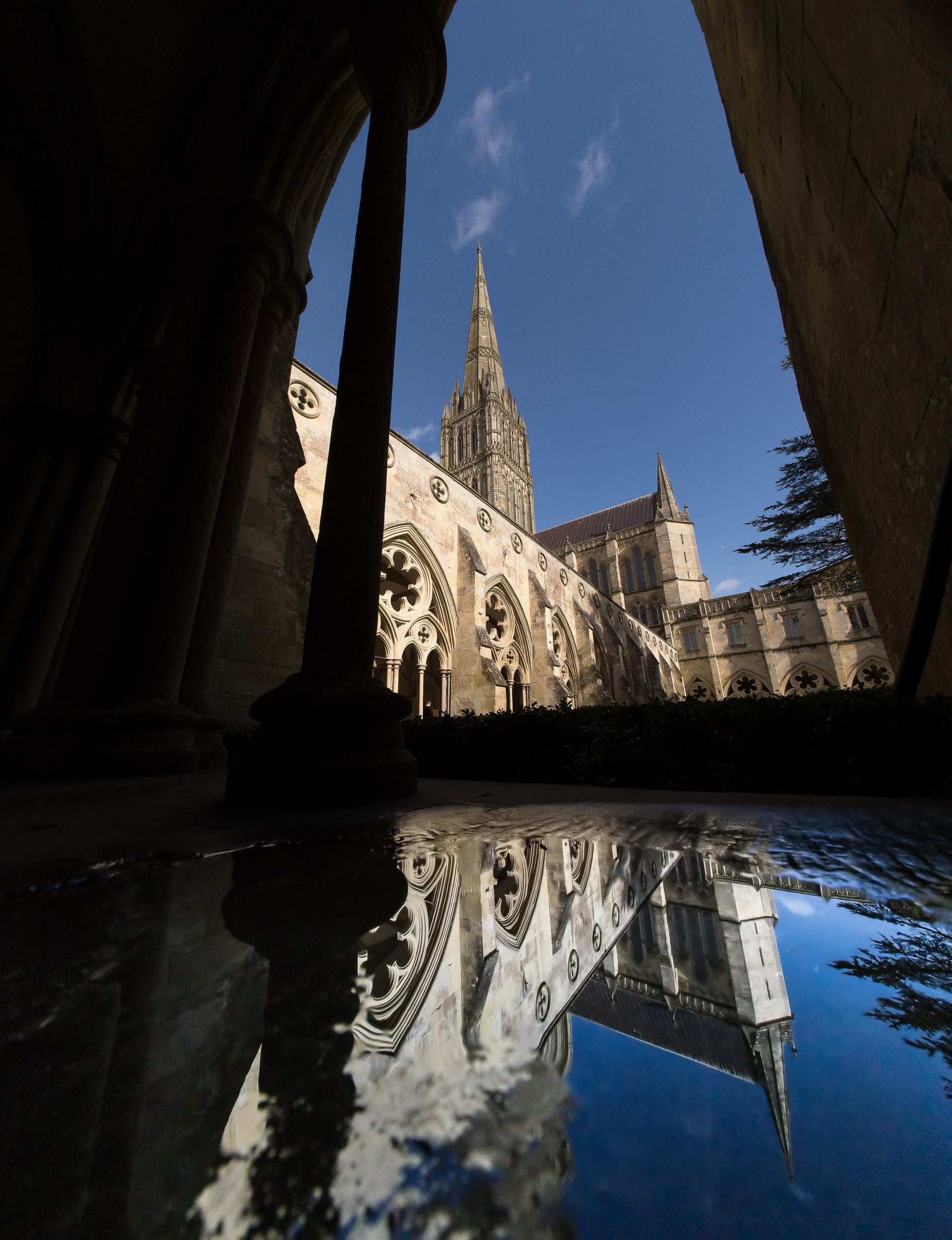The Third Sunday before Advent

A sermon preached by Canon Nigel Davies, Vicar of the Close.
Sunday 06 November, The Third Sunday before Advent.
I have long reduced my consumption of the daily news bulletins, as I am sure many others have done in recent times. My disengagement from TV and Radio News programmes and my migration to the BBC Website for its news content, began well before COVID and the dystopian world order that we now inhabit. My disengagement began because of the Radio 4’s Today’s programme obsession with trying to predict the news. When I listen to the programme first thing in the morning the pattern was to speculate on the day’s news between 6.00 a.m. and 7.00 a.m. before any sensible politician was available to be question live by one of the presenters. I grew annoyed with their predictions and the trailing of what some one in the public eye would say in an important speech or when attending some important event. I found myself wondering why news reporters couldn’t wait until the event happened, before telling us all about it. This kind of reportage, or speculation has grown worse and worse, and in my view, has devalued news reporting making it more like clairvoyance. I do not need the current bad news topped off with a serving of the expected bad news to come.
Our two Bible passages today are preoccupied with second guessing the future, especially the passage from 2 Thessalonians. One can understand why Paul would feel the need to write to the church in Thessalonica, to spell out what to expect before the second coming. In the early church, the expectation of our Lord’s Second Coming would be widely discussed, as it was felt to be imminent. In a turbulent world which might end at any minute, the early Christians would want to be prepared. Paul tries to address although what he says, is based upon teaching already given to the Thessalonians, which we don’t have. No wonder Morris, in the New London Commentary writes:
‘…the passage is probably the most obscure and difficult in the whole Pauline correspondence…’
Paul was probably drawing on material from Daniel, where prophetic oracles about the end times are found. For the early Christians, the ‘lawless one’ was synonymous with ‘The Anti-Christ’ and Caligula might have fitted the bill, but as we now know, the end didn’t come and the end hasn’t come, although the way the world is now might cause some to imagine the Parousia is closer now ‘than when we first believed’. The world has been like this many times before – many lawless ones have come and gone, Donald Trump being, perhaps for some, an embodiment of such a one. Preoccupation with such speculation however is not what the Christian faith is about, it is in my view a side show.
I would also argue that the Gospel passage sends us down a theological ‘cul-de-sac.’ For the Sadducees and the Pharisees, the doctrine about the after-life was a very real issue, especially in a society which saw social care of the elderly, something one’s children manage, so it became imperative that a women produced an heir and that any unmarried brother’s duty, if his siblings marriage had ended without issue, was to try and raise up children by marrying the widow and seeking to raise a family with her, if she was still of child bearing age. Jesus summarily dismisses their speculative argument, explaining that life in heaven is quite different, to life in the here and now.
At this point you might wonder where this sermon is heading – it is heading in the direction of my understanding of the Christian Faith. The Christian faith is not a means by which we can predict the future. It does not provide us with tools to interpret the ‘signs of the times’, even though some would wish it thus. It is understandable that during this season in the church’s year, from All Saints to Advent, the Lectionary causes us to turn our gaze heavenward, to the saints that have gone before us, to our loved ones who now wait upon another shore, but it seems to me that such a focus, and a preoccupation with what might be, deflects us from what should be – our role in contributing to this world.
We may be fascinated by the notion of heaven and its theological ramifications. On the other hand, we may find that speculation about the afterlife and the end times raises our anxiety levels. Whether fascinated or anxious, it seems to me that we are missing the point. The season between All Saints and Advent, provides us with the opportunity to reflect upon the example of ‘the cloud of witnesses’, referred to in Hebrews and referenced in the liturgy, as a means of inspiring us to be more faithful followers of Jesus. We should be pointing people towards the values of the Kingdom of Heaven and its social order, after all it’s what we pray for – ‘Thy Kingdom come’ thy will be done’.
In following the two great commandments, which are the essence of Christinaity, ‘To love God and our neighbour as ourselves’, inspired by the Christian Saints of old and those exemplars we have known who have influenced our lives, we need to do what we can, in the place we are set, and engage in the activity of the Kingdom, TODAY.
AMEN




